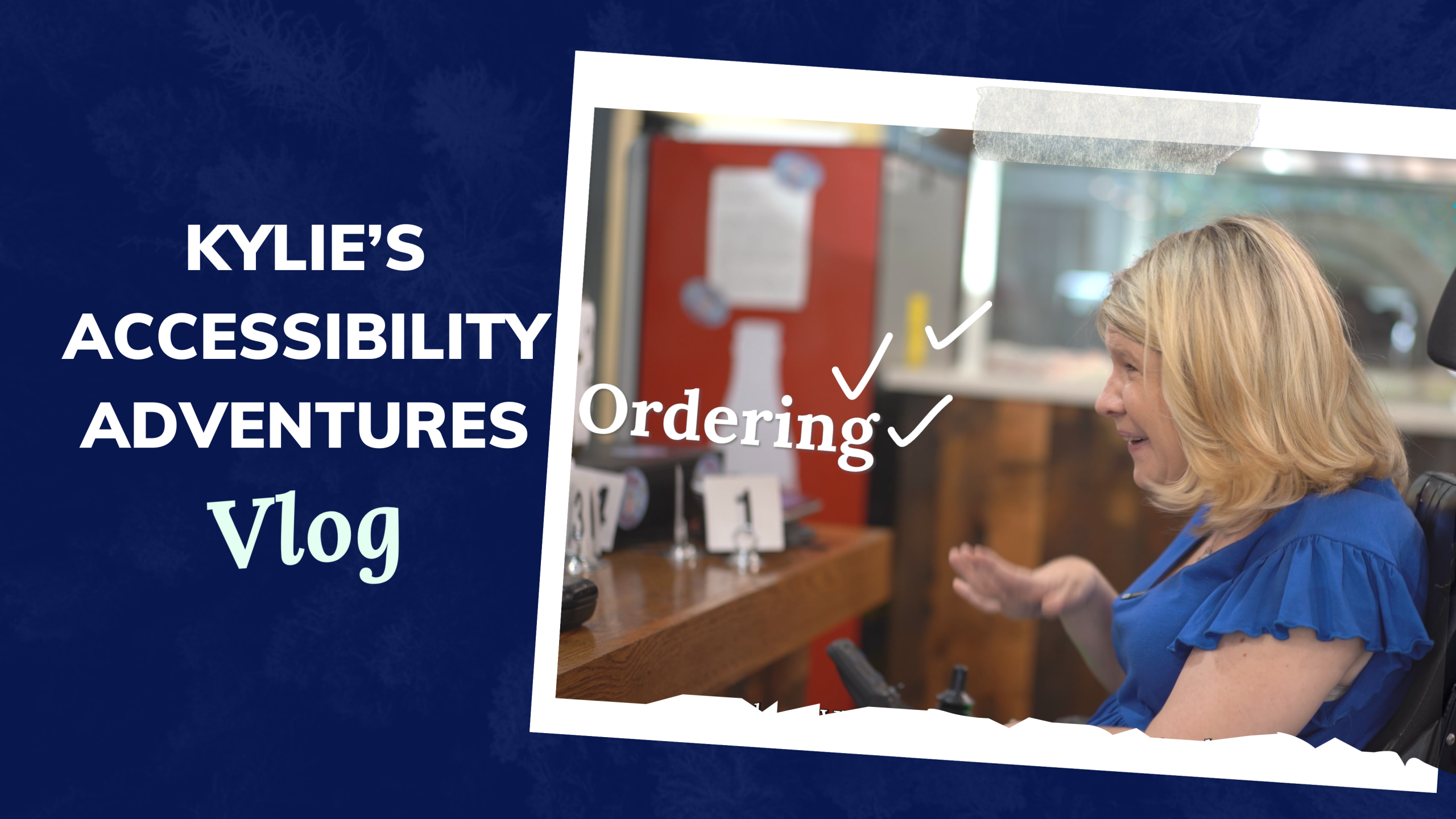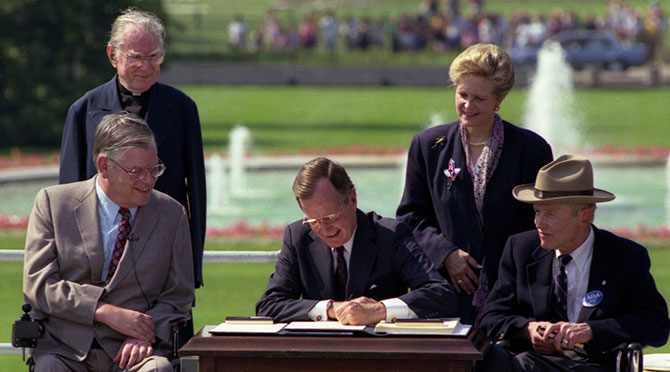Unsure of his future in the workforce after being off for almost four years, Jim Lindquist reached out to the Vocational Rehabilitation (VR) Agency in his home state of Tennessee. Through the program, he learned about Bobby Dodd Institute (BDI) and an available position as a part-time switchboard operator. Jim applied immediately, but, in his words, “I didn’t expect much.” The next day, he was invited for an interview, and the day after, he received a job offer, which he accepted on the spot. After meeting with the BDI supervisor on his second day of training, she asked if he would like to work full-time instead, and Jim gladly accepted. That was over 11 years ago.
Jim’s dedication to BDI’s mission, his talents, and people skills were immediately noticed. He is now a site supervisor, leading a group of fourteen skilled individuals. Jim is a true believer in everything BDI stands for. In recognition of his accomplishments and dedication, he received the Luminary Award in the “Employee” category at Breakfast with Champions 2023.
I Am Somebody
Jim has always advocated for the disability community because he understands their struggles and challenges. This year, he had the opportunity to share his vision and ideas with a large audience. Jim, accompanied by his wife, attended the 2024 SourceAmerica Grassroots Conference. Alongside him were accomplished disability advocate and BDI Community Engagement Coordinator Agnes Iwaye, as well as key figures from the organization, including COO Debbyn Milligan and Joe Paolini, VP of Business Services. Joe is also a recipient of the 2023 NCSE Management Excellence Award.

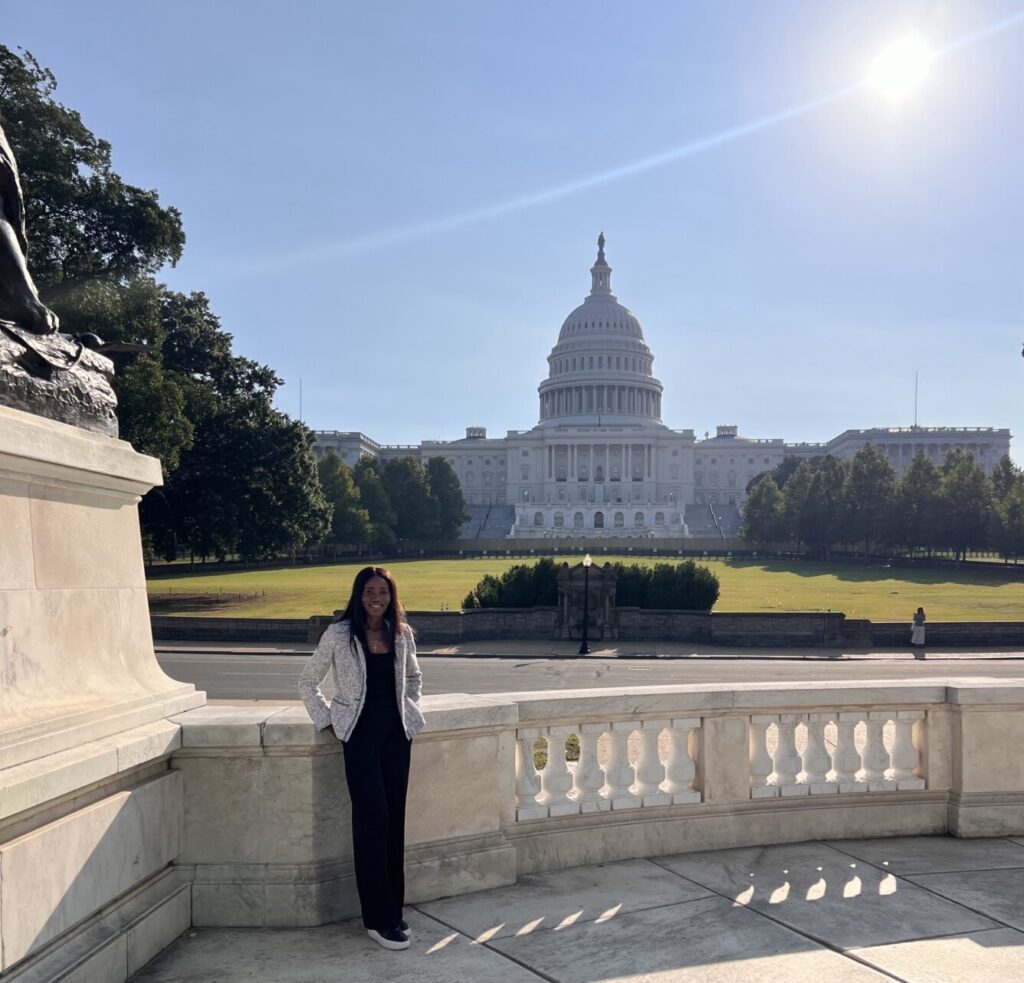
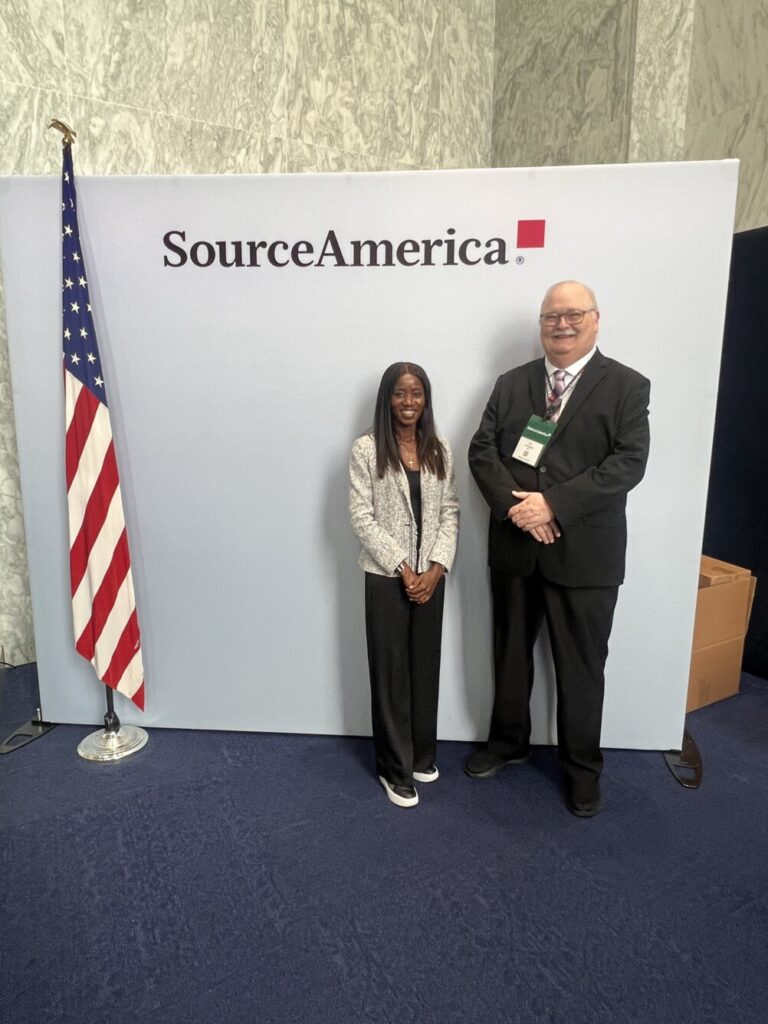
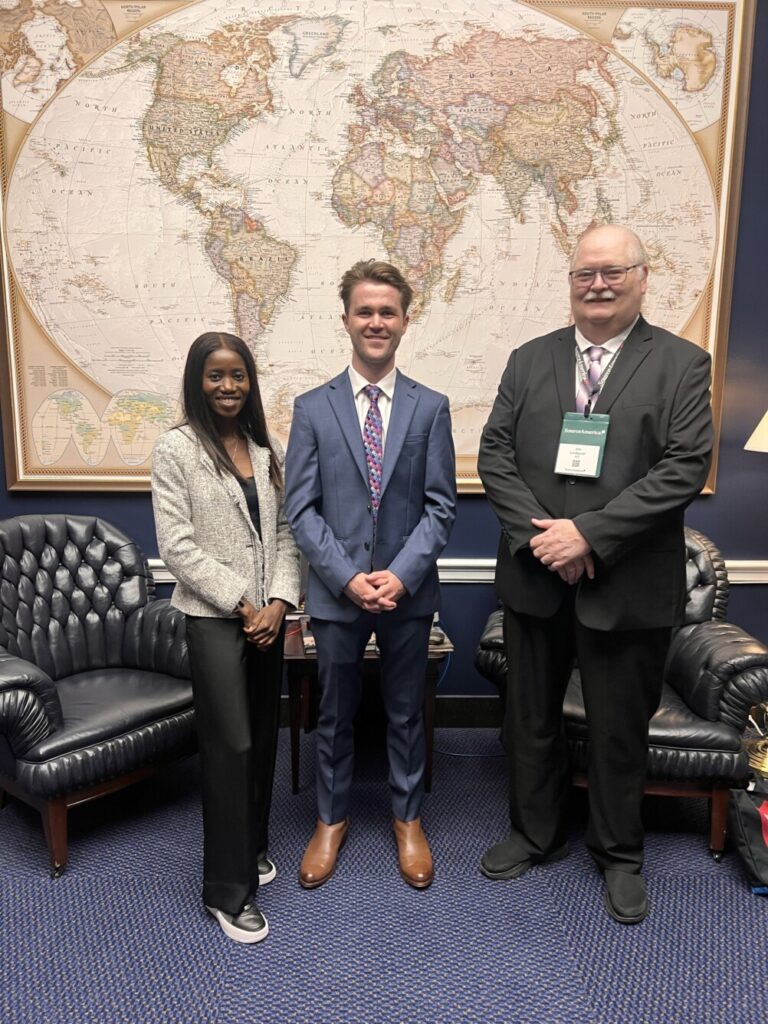
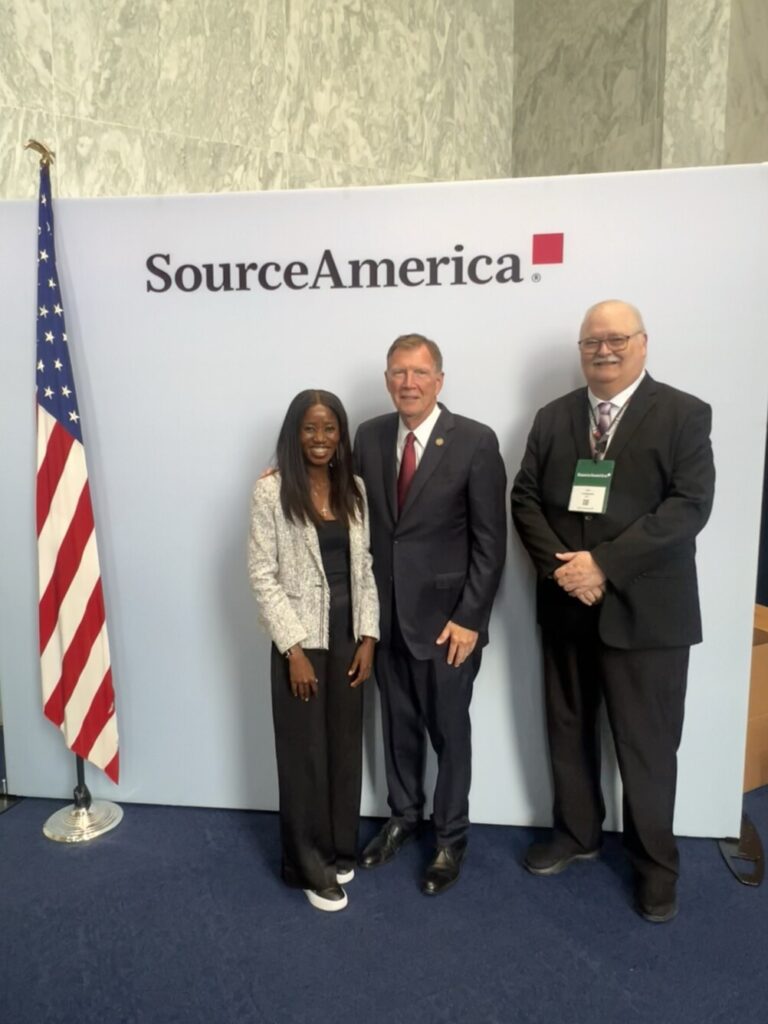
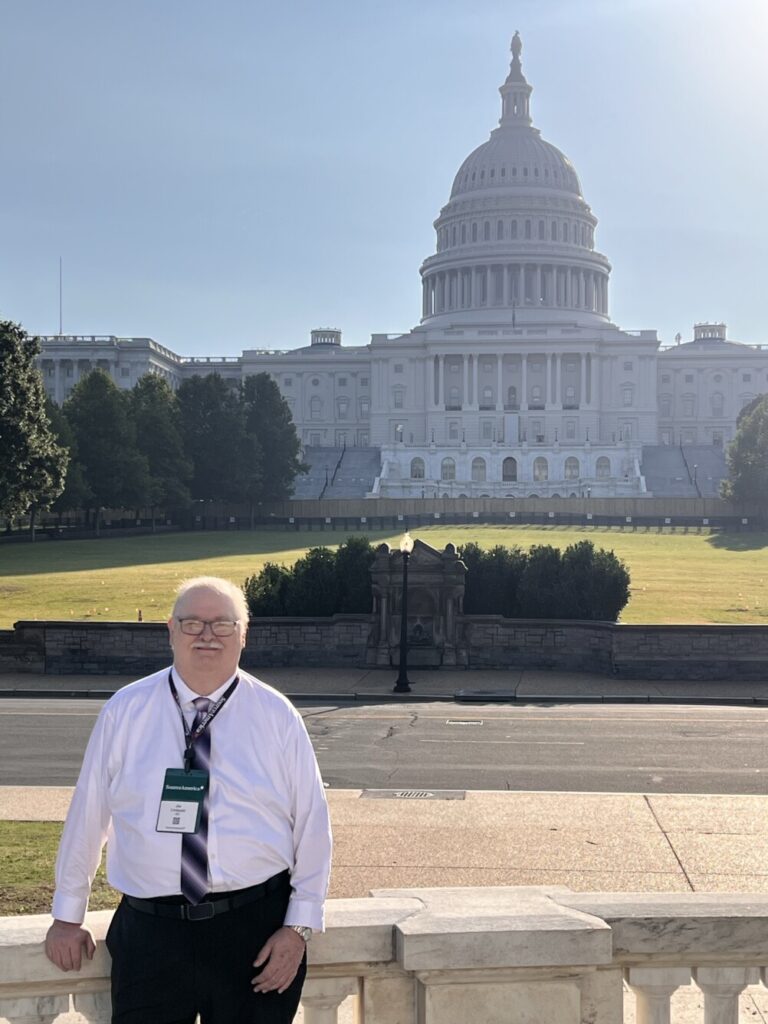
Jim and Agnes were able to share current challenges, specifically related to disability and employment, with the attending legislators. “I might come across as confident and composed, but believe me, my knees were knocking! But at the end of the day, they are just people like us—they put their pants on one leg at a time. And the three representatives we met were very attentive, genuinely listening to what we had to say,” Jim said after his return.
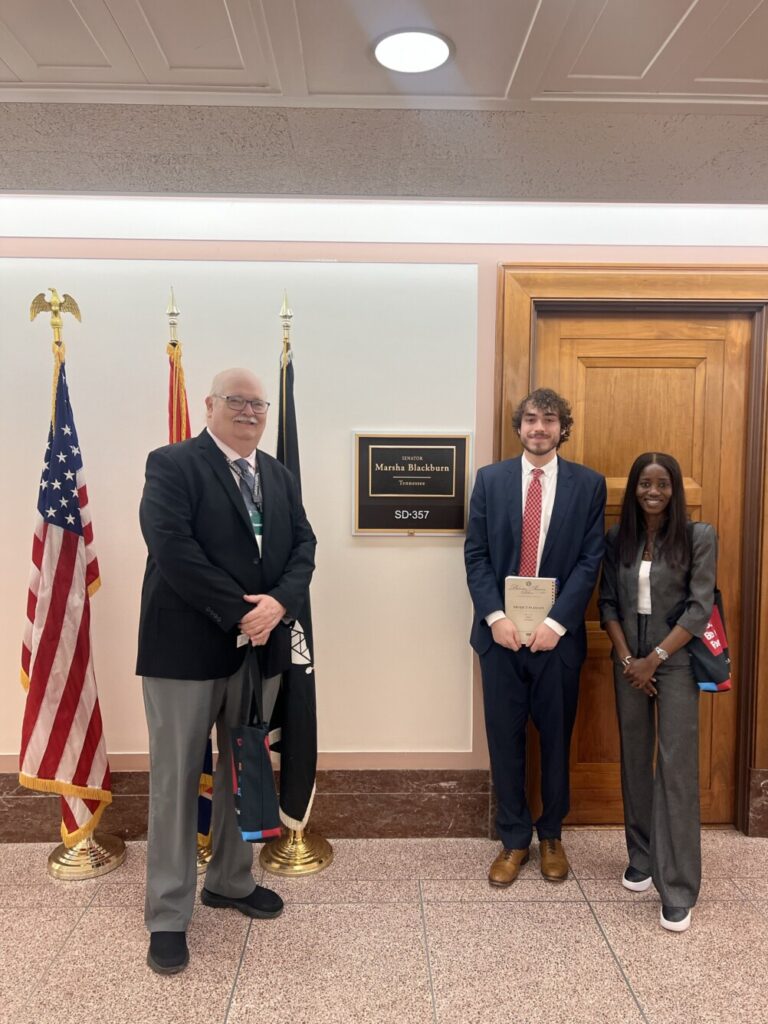
The event gathered over four hundred AbilityOne contracting providers in the same room, all focused on employing more people with disabilities. The attendees were inspired by 50+ real-life stories shared by program participants.
“There were deeply moving moments that brought many of us to tears as we listened to the powerful stories of how a single opportunity with NPAs across the country can transform a person’s life, enabling them to grow and achieve extraordinary things,” shared Debbyn Milligan.
Jim added: “I had the opportunity to engage with several inspiring advocates. Hearing their stories moved me and encouraged me to share my own. During the event, I felt I was advocating not only for myself, but for my team as well.”
Kylie Moore, a special projects coordinator at BDI, coached many of these self-advocates and provided invaluable support in helping them share their stories effectively under the theme “I Am Somebody.”
A Push for Changes
Individuals with disabilities and those without advocated for the AbilityOne program, which has been vital in helping them become financially independent through employment opportunities. Currently, AbilityOne contracts represent only 1 percent of federal procurement dedicated to employing people with disabilities, and the U.S. is operating at just 0.5 percent. “There’s a lot of room for growth. We can aim for 2-3 percent of contracts. This could create more opportunities for disabled veterans and others. Advocacy plays a critical role in shaping policy to increase these numbers,” Debbyn emphasized. The math is simple—if the current rate is doubled, it could potentially create 30,000 new jobs for people with disabilities.
Under the AbilityOne contract, BDI currently employs about 140 associates working at a federal wage of $17.20/hour, with approximately 30 percent of its total revenue coming from this partnership.
Another key issue under the spotlight was the push to raise the minimum wage to $15. This, however, can prevent people with disabilities from working more hours, as they risk losing their benefits. This is why it is important to develop policies that are truly inclusive, diverse, and equitable. “The Medicaid cap is an even bigger issue,” Kylie added. “There is a cap on how much money people with disabilities can earn without losing their Medicaid. My Medicaid pays for me to have a personal caregiver to help with my daily needs. I do not want to have to choose between the job I truly enjoy, which gives me purpose, and my caregiver, who is essential in my day-to-day activities. While my friends are getting promoted and building careers, I have to deny a raise I worked hard for to keep my benefits.”
“Although the United States aims to eliminate inequalities, some of these policies marginalize people with disabilities. An example is the income threshold, which reduces how much people with disabilities can earn. With the new increase in minimum wage, people with disabilities will no longer be able to work as much as they would want to. Unfortunately, our legislators may be unaware of the impact of these policies. This is why advocacy is crucial: bringing to the legislators’ awareness the impact of their policies on the underserved and marginalized communities,” Agnes emphasized. “While some lawmakers may be unaware of these issues, we need to keep sharing our message to ensure they are not overlooked,” added Jim, highlighting the importance of staying active during elections. And Debbyn agrees: “We need to amplify our voice and ensure it is heard on Capitol Hill.”
Through consistent advocacy, we can push for change, ensuring that organizations like Bobby Dodd Institute and their vital work are recognized. Advocacy is not just a one-time effort—it requires regular follow-up with legislators, who are often overwhelmed with requests. Focusing on specific advocacy points and maintaining ongoing communication are essential to keep these issues at the forefront of people’s minds.



